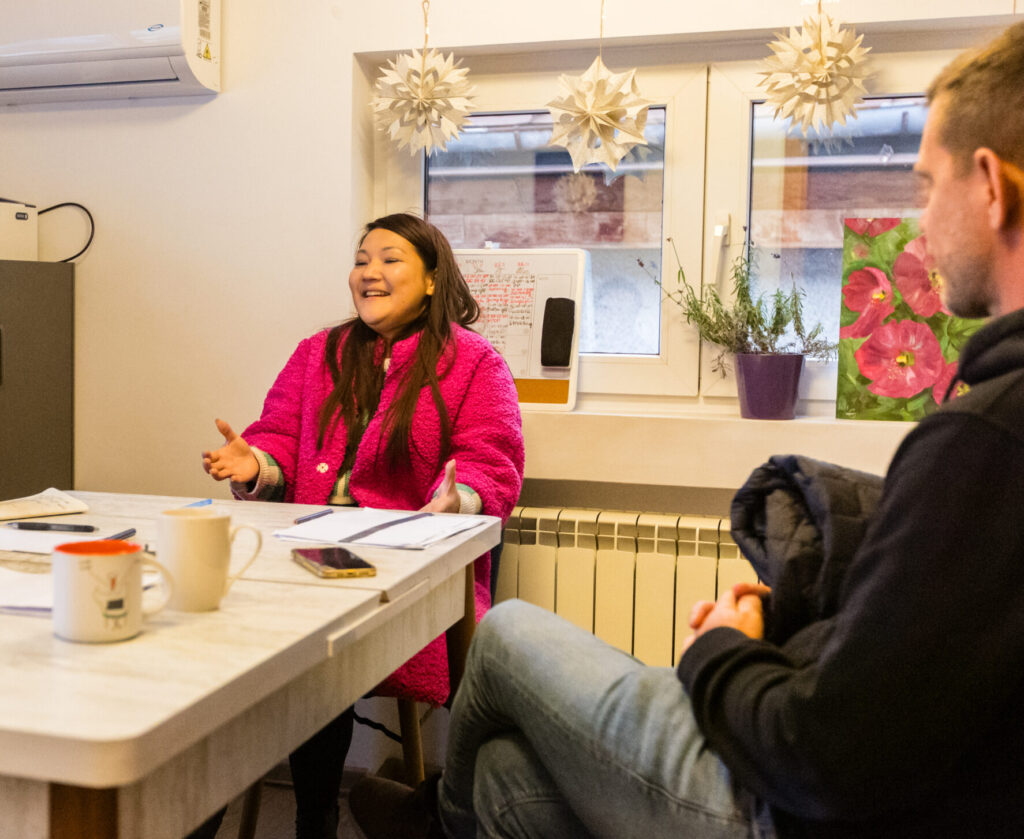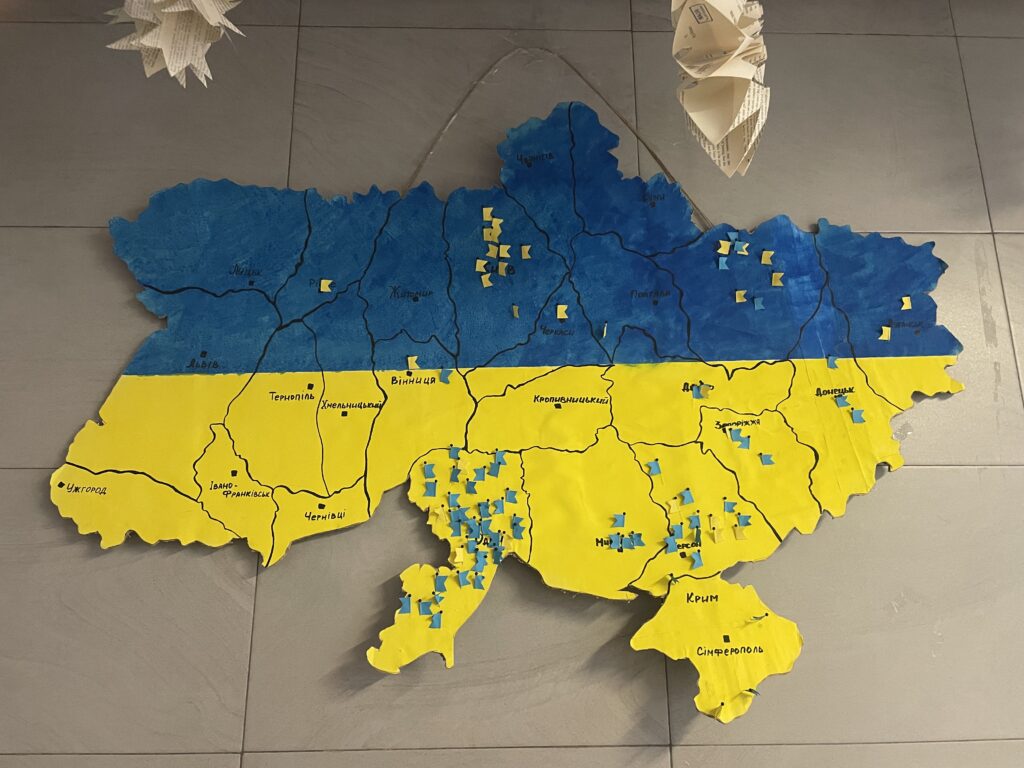HIGHLIGHTS
GET TO KNOW US
GET INVOLVED
MEDIA

REGIONS
California, Georgia, Chicago, North Carolina, New Orleans, Puerto Rico, Kentucky, Navajo Nation, Washington, D.C., Hawaii
INTERNATIONAL
16-year-old Valeriia, a Ukrainian refugee, found her people at a CORE-supported community center in Bucharest, Romania.
Valeriia’s life changed drastically when Russian forces occupied Mykolaiv, Ukraine, where she lived with her mom, dad, and grandmother. Constant shelling in her neighborhood forced her to flee, leaving her friends, school, and most of her family behind.
Both of her parents stayed in Mykolaiv due to immigration restrictions—her dad is an active member of the Ukrainian military, and her mom works as a medical professional.
At just 15 years old, Valeriia travelled by train for nearly 24 hours and crossed into Romania with her grandmother. She was welcomed by a generous family who hosted them in an apartment for free, hoping to give the women some reprieve from their tumultuous new reality. Though gracious for their hospitality, Valeriia desperately missed her family and friends and was eager to meet other Ukrainians.
Fortunately, Valeriia found Malva, a CORE-supported, community-based center for Ukrainian refugees in Bucharest. The center is led by Inessa, a Ukrainian refugee and mother, who wanted to support families like her own. Malva offers a range of services for children, including daycare, early childhood education, speech therapy, fitness, yoga, and dance classes. It also offers activities for teenagers and children with special needs.

Inessa is a Ukrainian refugee, mother, and founder of Malva, a CORE-supported community center.
For Valeriia, joining the community center was pivotal in easing her transition into life in Romania.
“Malva helped me a lot during the first stage as we were all coming here to help people, but first of all to help ourselves,” she shared. “I really wanted to communicate with Ukrainians, I wanted to make new acquaintances. And Malva helps me a lot because there are people here who I can always turn to in any situation, and they will support me.”
The center has become like a second home to Valeriia—in her own words, she has found her people here. On top of attending school, she teaches young children, ages one to three years old, as part of the center’s speech therapy program. She helps plan activities and lessons for the littles and has cherished watching them learn during these formative years.
“And, indeed, we see progress in some children because in a year and a half we see them grow,” she reflected. “Some of them really start to talk after our classes. And that’s great: you realize that you’re not just doing it for nothing.”
However, the progress is a stark reminder that Valeriia, like her young students and their families, has been away from her home in Ukraine for nearly two years.
She still dreams of sitting around a dinner table with her whole family, some of whom, like her parents, remain in Ukraine and others who have since scattered to other countries. For now, they rely on video calls to stay connected.

This map of Ukraine hangs in the lobby of Malva. Each flag represents the dozens of places where the center’s community came from before fleeing to Romania. (CORE Photo by Jaya Vadlamudi)
Nonetheless, Valeriia’s life has kept on moving. She finishes 11th grade this year and is preparing to enroll at the Institute of Culture to study directing. One day, she hopes to become a filmmaker. She loves to dance and, “like all girls,” she says, loves to watch romantic TV series in her free time.
Valeriia’s story illustrates just how important community centers like Malva are for people who have been displaced. Moving to an unfamiliar place, often with little knowledge of its culture and sometimes even the language, in addition to not having social support, are common barriers that make it difficult for refugees to rebuild their lives away from home.
Centers provide safe spaces for children, parents, and individuals to learn, teach, play, work, and chat with one another. Community building is at the heart of CORE’s work, which is why we have supported a variety of these centers in Ukraine, Romania, and Poland. Learn more about our work in the region.
HIGHLIGHTS
GET TO KNOW US
GET INVOLVED
MEDIA

REGIONS
California, Georgia, Chicago, North Carolina, New Orleans, Puerto Rico, Kentucky, Navajo Nation, Washington, D.C., Hawaii
INTERNATIONAL

CORE is a charitable 501(c)(3) nonprofit organization. Federal tax ID: 27-1703237.
© 2024 | CORE – Community Organized Relief Effort | +1 (323) 934 4400
910 N Hill St Los Angeles, CA 90012